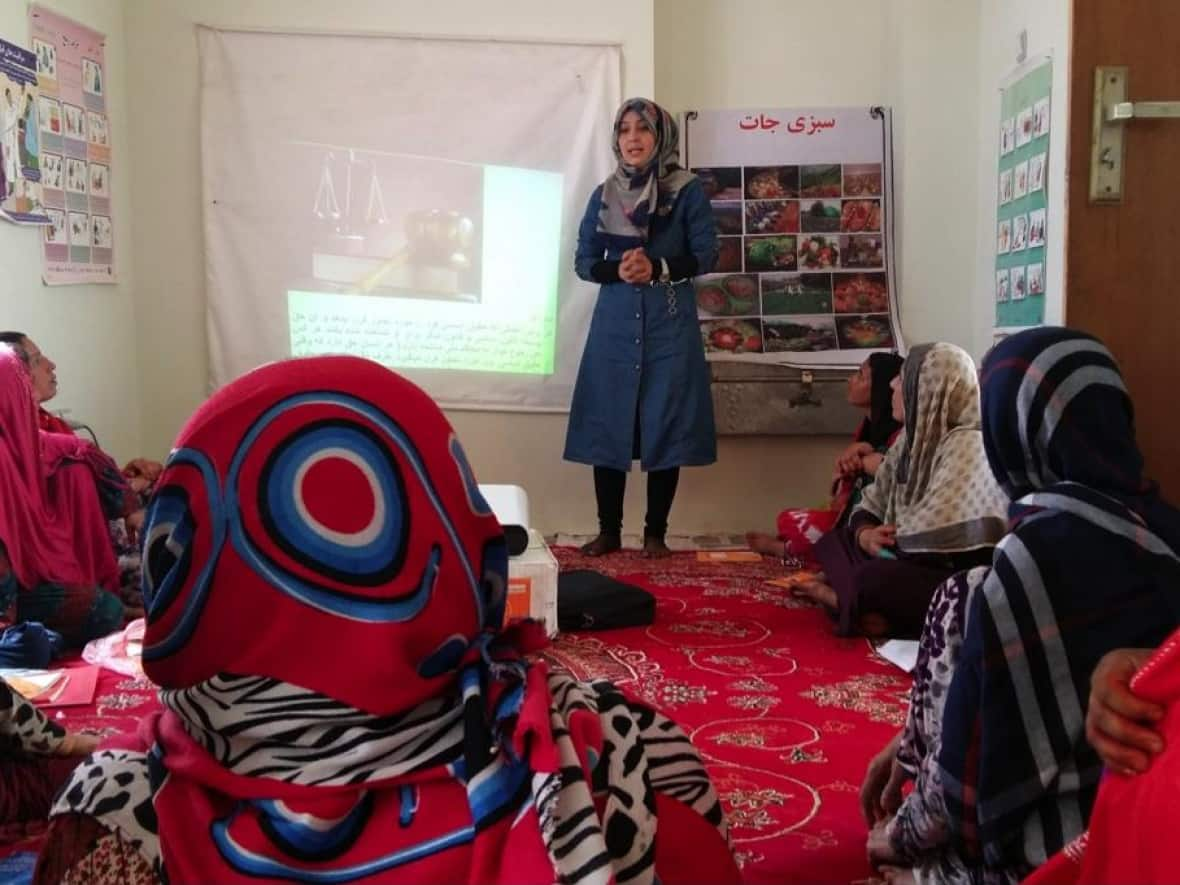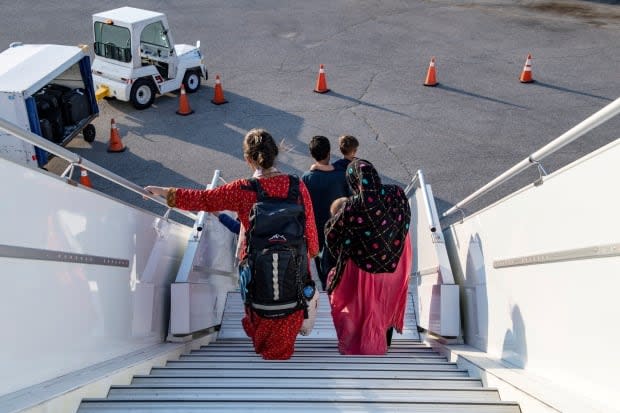Canada's effort to bring in Afghan refugees expected to take up to two years

With the year nearly over, only about a tenth of the 40,000 Afghan refugees the federal government promised to bring into the country have made it here so far — and Ottawa now says it could take up to two years to resettle everyone.
After promising back in September to bring the refugees here, the federal government is now citing a vague timeline for their resettlement. Immigration Minister Sean Fraser's office told CBC News they will be welcomed into this country "over the next two years."
Fraser himself would not offer an exact date for the arrival of the last refugee in a recent exchange with journalists.
"When you're trying to move 40,000 people out of the most challenging environments imaginable, one of the most dangerous places in the world today, it's not easy," he said. "What I'm really encouraged by is that we're starting to see a regular pace."
Before this summer's election campaign, the Trudeau government pledged to bring in 20,000 Afghan refugees by 2023.
Fraser's spokesperson Alex Cohen said several factors are slowing the process — the lack of infrastructure in Afghanistan, the fact that partner organizations such as the United Nations High Commissioner for Refugees are still ramping up their own operations, and the lack of an official Canadian diplomatic presence in Kabul.
"They are not in a mood to help the government of Canada," Fraser said of the Taliban.

But questions remain about the government's refugee project — such as why there seem to be no clear numbers on how many refugees the federal government and private sponsors are expected to bring in, and why applications from some candidates who already have made it to safe third countries are proceeding slowly.
Living in fear
"I have asked for a humanitarian visa," said Nelofar Akbari, currently staying in the United Arab Emirates with her husband Zekria Elhan, their son, her mother-in-law and younger brother.
Akbari said she has reached out to every private sponsorship organization listed on Immigration, Refugees and Citizenship Canada's website but has yet to receive a positive response.
Akbari said that as a defence lawyer who champions women's rights issues and tackles domestic violence cases, she was targeted by the Taliban.
"One night I moved to my mother and father's house, one night my house, one night my relative's house," she said, recalling her efforts to stay a step ahead of the Taliban in Kabul.
Her husband is a Hazara Shia Muslim. "The Taliban targeted to cleanse this ethnicity," Zekria Elhan said.
The two say they fear their temporary humanitarian arrangement in Abu Dhabi could end before they make it to Canada.
Private sponsors waiting to help
Former NATO strategic adviser and political analyst Zobair Deen said that's a valid fear.
Deen said he is now in contact with dozens of Afghans in an effort to bring them to Canada as privately sponsored refugees. He said many of them already have made it to third countries without knowing how long they will be able to stay there.
"The government of the third country is either pushing for these refugees to be taken out of the country or be deported back to their country of origin," he said. "So to expect and anticipate that these individuals of high-risk would be safe is completely unfair.
"They will go through a lot of suffering [if they return to Afghanistan]. There's no rule of law, there are no human rights."
He said he was surprised to hear Canada cite a lack of a diplomatic presence on the ground as a reason for the delays.
"We do not expect a Canadian embassy to reopen in Kabul," he said. "Why is it taking that long to process an application from Abu Dhabi? Why is it taking us long to process applications from Pakistan? Why is taking us so long to process applications from India?"

Deen said he's aware of dozens of private sponsors who reached out to Ottawa offering to help but received no clear directives.
In a statement issued to CBC News, Kaylee Perez, the chair of Canada's Sponsorship Agreement Holders Association Council, said Ottawa has asked private sponsors to take on 7,000 of the initial 20,000 refugees it pledged to bring to Canada. About 3,000 of them are expected in Canada by December 2023.
She also said there is no plan in place yet for the additional 20,000 refugees the federal government agreed to take in after the election. Perez said discussions with the federal government are still ongoing.
Last Thursday, Ottawa announced it had welcomed the first 250 privately sponsored refugees at Toronto Pearson International Airport.
In question period in the House of Commons Tuesday, Fraser said about 520 more refugees are expected in Canada by the end of the week.

 Yahoo Movies
Yahoo Movies 
